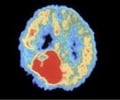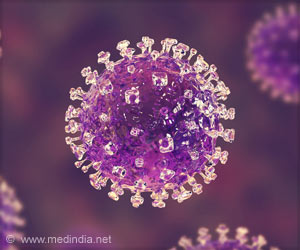
"This study showed a surprising rapid and large effect of genetic diversity in mice that dramatically reduced the replication of virus infecting the mice and the severity of disease caused by the virus," says biology professor Wayne Potts. He is senior author of the study published online this month in the British journal Proceedings of the Royal Society B.
"There's a reason we are not clones of our mom and dad," says the study's first author, Jason Kubinak, a postdoctoral fellow in biology. "Among other reasons, it's because mechanisms that promote genetic differences between us probably protect us from more severe infectious disease."
Indeed, Potts and Kubinak say their study's findings support the "sex-against virulence hypothesis." It argues that sexual reproduction, which promotes genetic diversity, may have evolved as a way to counter the ability of viruses and other pathogens to rapidly adapt to their hosts and gain virulence.
"The idea is that sexual reproduction produces different genetic makeups in all the kids so they are different than mom's and dad's, and therefore become more difficult to infect," Potts says. "Our study simulates this condition. The inbred mouse strain is like an asexual line because they all have the same genetic makeup. This is one of the first empirical demonstrations of how pathogens could make it so that sexual reproduction had great benefits in providing resistance to diseases."
Another hypothesis is that sexual reproduction evolved to effectively weed out many of the harmful genetic mutations that occur every generation.
Advertisement
Researchers previously showed in plants and insects that a virus replicates faster and becomes more virulent when it rapidly adapts to the "host" it infects because the host species has low genetic diversity. Potts says it hasn't been shown before in a vertebrate species, although "it had been theoretically predicted for over two decades."
Advertisement
Source-Eurekalert















